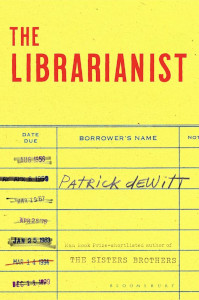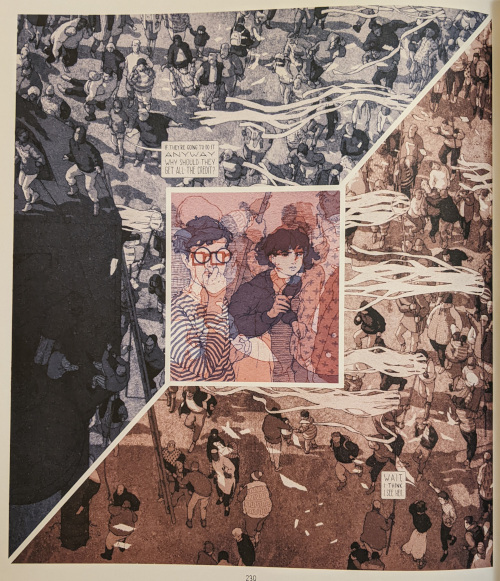 Holy guacamole, this little blog of mine is ten years old! Where the hell did that time go? On reading books, apparently.
Holy guacamole, this little blog of mine is ten years old! Where the hell did that time go? On reading books, apparently.
As is customary by now, I’m celebrating the new year with an end of year book survey. I usually have this written and ready to go days in advance, but I plum forget about it this year, so I’ve only just managed to slap this together in time! I suppose it helps that I haven’t got an unmanageable pile of books to choose from, just an easy baker’s dozen.
Without further ado, onto the books…
2023 Reading Stats
Number of Books You Read: 13
Number of Pages: 3873
Genre You Read The Most From: Science fiction
Best in Books
Best book you read in 2023?
Several strong contenders, but I’m going to choose Cosmoknights, because just thinking about that books gets me excited, I absolutely adored it.
Book you were excited about and thought you were going to love more but didn’t?
Hmm, Acceptance. I had loved the first two books in the Southern Reach trilogy, and while I did enjoy the third one, I just didn’t love it as much. Which was sad.
Most surprising (in a good way or bad way) book you read?
Square Eyes. I bought it on a whim quite a while ago and it had been sitting on my shelf since. I finally decided to read it, with no real expectations, and it was so good! A lot of thought-provoking and important themes which I hadn’t anticipated.
Book you “pushed” the most people to read?
I am still pushing people to read Frontier and Cosmoknights. Everyone needs more space gays in their life.
Best series you started in 2023? Best sequel? Best series ender of 2023?
As I’ve only recently finished it, I’ll say A Memory Called Empire as the best first in a series, mostly because it’s fresh in my mind and I’m keen to read the next book.
Best sequel has to be The Trials of Koli, still obsessed with this series and am itching to read the last book—soon.
And the only series ender I read was Acceptance, so that wins by default!
Favourite new author you discovered in 2023?
It has to be Grace Curtis. I’ve read both her books via advanced reading copy, have been eager to buy them (paperback when?), and already can’t wait for her next book.
Best book from a genre you don’t typically read/was out of your comfort zone?
Hmm. I’ll say The Two Doctors Górski. While it was science fiction, it was more on the psychological and fantasy end of sci-fi. It was also hugely character-driven, which I enjoy but don’t read a lot of.
Most action-packed/thrilling/unputdownable book of the year?
I’ve got to go with Cosmoknights (and the sequel). Definitely action-packed and thrilling. I could easily have not put the books down and read them swiftly in one go, but I made sure I paced myself a little to savour them a bit.
Favourite cover of a book you read in 2023?
There are quite a few gorgeous covers this year, but it has to be Frontier. The colours, the negative space… give this cover a frame.

Book you read in 2023 that you would be most likely to re-read next year?
I can’t keep saying Cosmoknights, but… whenever the third in the series comes out I will likely make short work of re-reading the first two before diving in.
Most memorable character of 2023?
Bob Comet and all his friends at the senior centre from The Librarianist. I’d hang around with them any time, they’re hilarious.
Most beautifully written book read in 2023?
Oh, I’m going to say The Tower in the Sea. It’s a graphic novel and the art is literally beautiful, but it’s also just the mood of the story. Beautiful in all the ways.
Most thought-provoking book of 2023?
On a personal level, I’ll say The Stranding, and on a philosophical level I’ll say A Memory Called Empire.
Book you can’t believe you waited until 2023 to finally read?
It has to be Square Eyes, simply because it’s been sitting on my shelf the longest!
Favourite passage/quote from a book you read in 2023?
Once again, I have been lax at keeping track of my favourite quotes this year, but of the ones I did share to my tumblr, my favourite would be…
“Bob had long given up on the notion of knowing anyone, or of being known. He communicated with the world partly by walking through it, but mainly by reading about it.”
Patrick deWitt – The Librarianist
Shortest & longest book you read in 2023?
Shortest: The Tower in the Sea at 97 pages
Longest: A Memory Called Empire at 462 pages
Book that shocked you the most?
Oh, it has to be Floating Hotel, because I did not see the ending coming… and I love it when that happens.
Favourite non-romantic relationship of the year?
Perhaps because it’s fresh in my mind, but I loved the close, easy friendship between Three Seagrass and Twelve Azalea in A Memory Called Empire, and how it was portrayed through the eyes on the main character, from the outside, who wished she had a friendship like that.
Favourite book you read in 2023 from an author you’ve read previously?
There are a couple of authors I’ve read multiple books by this year, but as it was the first year I’ve read them, that kind of feels like cheating. So I’ll say The Trials of Koli, mostly because I am super keen to read the next book in the series!
Best book you read in 2023 that you read based solely on a recommendation from somebody else?
A Memory Called Empire, which I read almost solely because my partner absolutely loved it.
Best world building/most vivid setting you read this year?
There were many great books doing some amazing world-building that I read this year, but my heart is saying Floating Hotel. The ease with which Curtis built not only the world inside the hotel, but the snippets of worlds on planets they passed and the worlds within each of the characters. It was exquisite.
Book that put a smile on your face/was the most fun to read?
Cosmoknights, all damn day. Such a fun read!
Book that made you cry or nearly cry in 2023?
I don’t think any made me cry this year? Which is kind of surprising, because I’ll cry at anything. But A Memory Called Empire almost made me cry.
Hidden gem of the year?
Probably The Tower in the Sea, as not as many people have read it.
Book that crushed your soul?
I’ll have to say The Stranding, because of where my mind was at during the time I read it and because it’s pretty depressing overall, I can’t lie!
Most unique book you read in 2023?
I have to say The Two Doctors Górski, because it deals with concepts and themes I haven’t often come across.
Book that made you the most mad (doesn’t necessarily mean you didn’t like it)?
The Stranding… because I did not agree with choices the main character main and she made me angry.
Blogging Life
Favourite post you wrote in 2023?
I didn’t have one last year, as I’d only posted book reviews. I have the same issue this year, except I can do what I wanted to last year and say my 2022 End of Year Book Survey!
Favourite bookish related photo you took in 2023?
Scrolling through my instragram, the book photo that pleases me the most aesthetically is this one of The Trials of Koli…

Most challenging thing about blogging or your reading life this year?
Remembering that I post my end of year survey on the 1 January and scrambling to get it written and ready on the 31 December. I’m usually much more organised than this!
Best bookish discovery?
This tiktok video, because it spoke to my soul. Floppy book supremacy!
Did you complete any reading challenges or goals that you had set for yourself at the beginning of this year?
I set myself a goal of 12 books. One a month. I thought it would be an easy goal. And it was, to some degree. Several of those where short and/or graphic novels. And when I met my goal I ground to a halt for a couple of months. But, with having only dragged myself out of a reading slump last year, I think I’m not doing too badly.
Looking Ahead
One book you didn’t get to in 2023 but will be your number one priority in 2023?
The final book in the Ramparts series. I was hoping to at least start it at the tail end of this year, but unfortunately I didn’t.
Series ending/a sequel you are most anticipating in 2023?
See above! Can’t wait to complete the Ramparts trilogy early next year!
One thing you hope to accomplish or do in your reading/blogging life in 2023?
No goals this year. Status quo will be good. Read and review. Anything else is a bonus.



 Holy guacamole, this little blog of mine is ten years old! Where the hell did that time go? On reading books, apparently.
Holy guacamole, this little blog of mine is ten years old! Where the hell did that time go? On reading books, apparently.





























